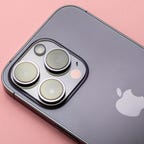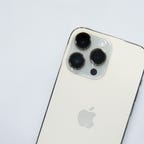[ad_1]
Amazing cameras are common on all the best smartphones you can buy in 2023. These include phones from companies like Apple, Google and Samsung, with each company offering different features, a different number of camera lenses, and different amounts of megapixels. But just because a phone has more lenses or megapixels doesn’t mean it’s any better at actually taking great-looking shots. Top phones like the iPhone 14 Pro and Pixel 7 Pro also pack bigger image sensors and huge improvements in software for AI-powered computational photography. Then there’s the Samsung Galaxy S23 Ultra‘s camera, which can take some of the best zoom photos it’s possible to get from a phone.
As you read through comparisons of cameras on phones, it’s important to keep in mind that there isn’t a “perfect” phone camera. There are definitely phones that excel at a specific feature when compared with others — the zoom on the Galaxy S23 Ultra, for example — but that might not be a feature worth paying for if you have little interest in zoom photos. And, as mentioned, don’t be fooled into thinking more megapixels in a camera means better photos. We look at how these cameras perform in real-life situations: how they balance exposures, how they handle colors and how easy they are to use.
Read our guide to help find the best phone camera for your needs.
What is the best camera phone?
The $999 iPhone 14 Pro and $1,099 iPhone 14 Pro Max have the same camera and as a complete package for photos and videos are the best cameras on any phone you can buy. The 14 Pro can capture detailed photos with a wide dynamic range, has the best looking video in terms of image quality and a default Camera app that neatly packages the most standard camera tools, modes and settings. Is the iPhone 14 Pro leaps and bounds ahead of what Google and Samsung are doing? No. But in terms of consistency, reliability and approachability, the iPhone 14 Pro is our pick for people who want a top notch camera system that’s easy to use.
Best camera phones of 2023
Apple’s iPhone 14 Pro might come with a steep asking price, but it ticks almost every box you could want from a camera setup on a phone. Its main 48-megapixel sensor takes superb images, with crisp details and beautiful, natural colors, its wide-angle lens is one of the best around and it excels at night photos, delivering bright and clear shots when there’s minimal light.
Its 3x zoom lens falls short of rivals like Samsung’s 10x zoom on the Galaxy S22 Ultra, but 3x is still enough to help you find interesting compositions in your landscape or get a slightly more close up photo of a cute dog you found in the park.
Its video skills are superb too, with rock-solid image stabilization, 4K resolutions and Apple ProRes support for those of you wanting to get the absolute best-looking footage when editing in software like Adobe Premiere or DaVinci Resolve.
Google’s Pixel 7 Pro has impressed us in a number of ways from its slick new design to its extremely user-friendly software. But it’s the camera that’s really stood out, with the Pixel 7 Pro delivering superb shots in a variety of conditions. Its main sensor captures shots with superb dynamic range and vibrant colors while its 5x optical zoom gives extra reach than the iPhone 14 Pro is able to manage.
And while its night mode shots aren’t as good as the iPhone’s, it’s a great camera overall that’ll suit both photography amateurs — and those looking to take more artistic images — well and at a cost that undercuts its rivals.
The Galaxy S23 is a lot, but in a good way. Samsung made improvements to the camera’s resolution (200 megapixels compared to 108 megapixels), color tones and dynamic range, while retaining the impressive 10x optical zoom as its predecessor. There’s also a new Qualcomm Snapdragon 8 Gen 2 processor that’s been optimized specifically for Samsung’s phones, which brings faster performance compared to the Galaxy S22 Ultra.
Starting at $1,200, it may be an understatement to call this phone expensive. But those willing to pay more for a giant screen and a high-quality, versatile camera won’t be disappointed. Read our full review of the Galaxy S23 Ultra.
Apple’s video capture has always been top notch and the iPhone 14 Pro Max keeps that going. The resolution might top out at 4K — rather than 6K or 8K seen on some Android phones — but its overall quality is second to none. Exposure and dynamic range is beautiful, detail is superb and image stabilization has been given a huge boost with the new Action Mode. Then there’s the Cinematic Mode which provides deeper focus control for focus pulling between two characters in a scene.
But it also lets you shoot in Apple’s ProRes video codec. This generates huge video files, but it gives more scope for professionals to add color grades in post production software without sacrificing quality, meaning that the iPhone 14 Pro Max could be a legitimate part of a professional filmmaker’s kitbag. And while the iPhone 14 Pro and Pro Max differ only in size, the extra screen real estate of the Max model will not only help you monitor your footage more easily, but it gives you more to physically hold on to when you’re out and about which could help you keep it more stable while filming.
While Google’s latest Pixel 7 and 7 Pro might steal the headlines with their flashy new design and Tensor G2 processor, the Pixel 6A offers a lot of what Google’s latest Pixel phones have boasted but in a smaller and more affordable package. It has just two rear cameras (a standard zoom and an ultrawide) with both taking great-looking images that look better than almost any other phone at this price — including Samsung’s Galaxy A53.
If photography is critical to you and you want features like long zooms and crystal clear night mode images then you’ll want to splash a bit more cash on the most recent Pixel 7 Pro. But for the money, few other camera phones come close.
How we test phones
Every phone on this list has been thoroughly tested by CNET’s expert reviews team. We actually use the phone, test the features, play games and take photos. We assess any marketing promises that a company makes about its phones. And if we find something we don’t like, be it battery life or build quality, we tell you all about it.
We examine every aspect of a phone during testing:
We test all of a phone’s cameras (both front and back) in a variety of conditions: from outdoors under sunlight to dimmer indoor locales and night time scenes (for any available night modes). We also compare our findings against similarly priced models. We have a series of real world battery tests to see how long a phone lasts under everyday use.
We take into account additional phone features like 5G, fingerprint and face readers, styluses, fast charging, foldable displays and other useful extras. And we, of course, weigh all of our experiences and testing against the price so you know whether a phone represents good value or not.
Read more: How we test phones
Phone camera FAQs
Which phone camera is the best at night?
The Samsung Galaxy S23 Ultra, Apple iPhone 14 Pro and Google Pixel 7 Pro all have dedicated night modes that take multiple images and combine them in a single photo that’s brighter and has less image noise. All three are good, and its nearly impossible to say one is better than another.
Are iPhone or Samsung cameras better?
Samsung Galaxy phones and Apple iPhones have some of the best cameras found on any phone. Either smartphone is a capable photographic tool, but neither is such a clear leader that it’s worth moving from Android to iOS or vice-versa. If you want the best telephoto camera found on a phone, grab a Samsung Galaxy S23 Ultra. If you want an excellent all-around shooter that produces natural looking images and videos, get an iPhone 14 Pro or 14 Pro Max. But if you just want to get the most out of your phone’s camera, the easier decision is to start shooting raw instead of JPEG.
What’s the difference between real cameras and phone cameras?
The biggest difference between a dedicated camera and a phone camera is the size. A dedicated camera has a larger sensor and bigger lenses that take in more light. The results are photos that have more detail, a wider dynamic range and are more versatile in medium and low-light. A phone camera is tiny. The sensor is smaller than a fingernail and the lens is about the size of a single Lego brick. To overcome the limitations of a small sensor and lens, a phone uses computational photography (AI and machine learning) to combine parts of multiple images into a single photo that’s brighter and has more detail than a phone camera alone.
More of the best phones
[ad_2]
Source link


